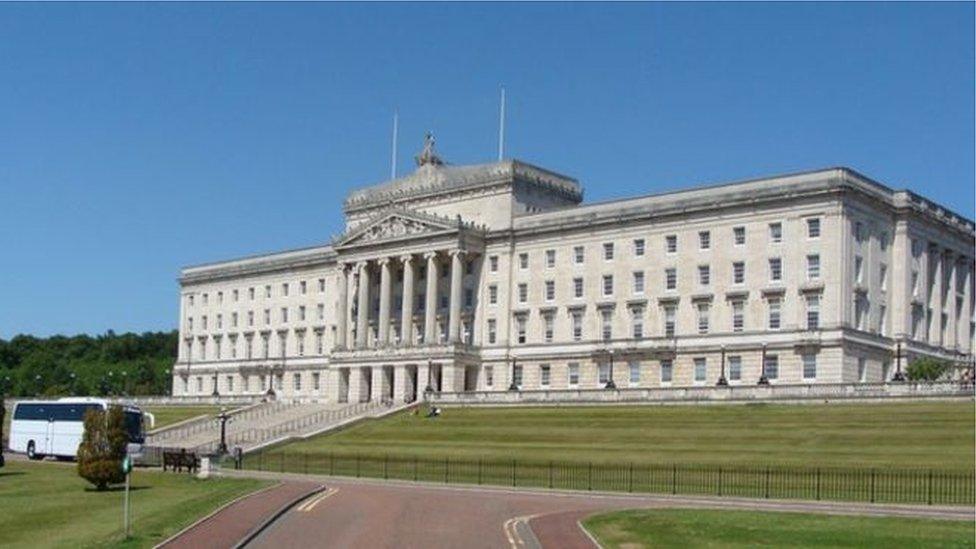Martin McGuinness: "Very serious questions" about Peter Robinson and Nama sale
- Published
Martin McGuinness said that the deal "raises very serious questions in relation to what capacity the first minister was acting."
Martin McGuinness has said there are "very serious questions" about what capacity Peter Robinson was acting in with regard to the Nama loan sale.
The deputy first minister was giving evidence to the finance committee.
Mr McGuinness said he was not told about meetings and contacts between Nama, bidders for its NI portfolio and DUP ministers.
The National Asset Management Agency (Nama) sold its NI loan book to a US investment fund.
A Stormont inquiry began after it was claimed a Northern Ireland politician was to get a payment as a result of the sale.
Nama: The key figures and background you need to know
Timeline of Nama's NI property deal
Mick Wallace, an independent politician in the Republic of Ireland, made the claim about a Northern Irish politician in the Irish parliament.
Deputy First Minster Martin McGuinness told Stormont's finance committee it was "totally, absolutely misleading" for the DUP to say he was being kept informed about a bid for the portfolio from the Pimco investment fund.
He said Mr Robinson did at some point tell him Pimco had bid and subsequently withdrawn, but not the detail.
Mr McGuinness was "gobsmacked" to learn the former US Vice President Dan Quayle visited Stormont to meet Mr Robinson and he was not told.
Mr Quayle is now chairman of Cerberus Global Investments the US fund which bought the Nama loans.
'In consort'
Asked whether he should have been kept up to speed about meetings in which Mr Robinson was acting as first minister, Mr McGuinness said that led to his concerns.
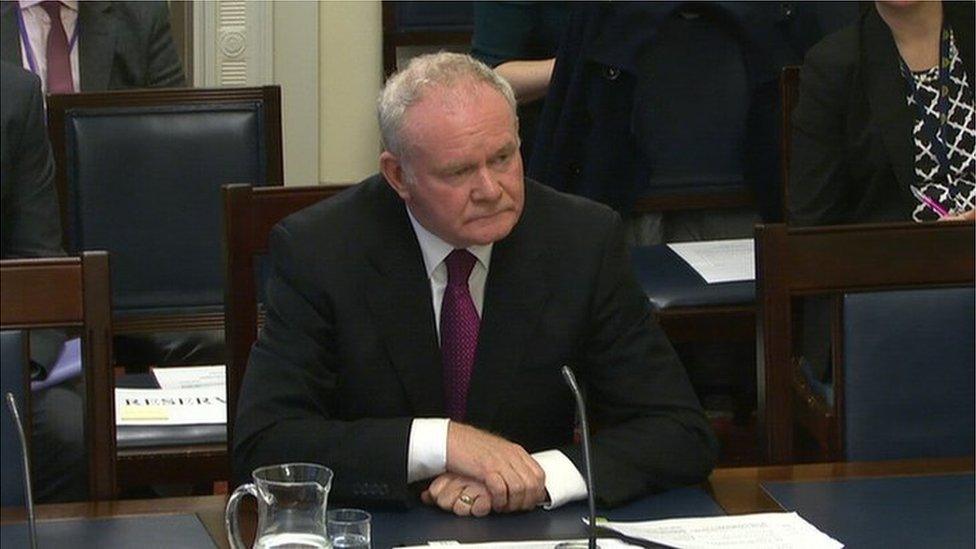
Mr McGuinness told the committee that officials could find no paper trail to support claims that he had been "fully briefed" in relation to the Nama sale
"It raises very serious questions in relation to what capacity the first minister was acting," he said.
"Because if I wasn't aware of these engagements taking place, then it clearly suggests that the first minister was in consort with the minister for finance and personnel, who was from the DUP party, was involved in an enterprise, which also involved Michael Noonan (Irish Finance Minister), without my knowledge, in terms of the meetings that were taking place."
DUP committee member Jim Wells put it to Mr McGuinness that a memorandum of understanding (mutually agreed conditions for a deal), which had been sent from the first minister's office in regard to a possible deal, had been shared with Sinn Féin.
Mr Wells said the relevant documents had been sent to a senior Sinn Féin advisor, Dara O'Hagan.
Mr McGuinness reiterated that the memorandum of understanding was not shared with him.
"It's quite clear what's going on here, that what you're doing is trying to distance yourself from a deal," Mr Wells said.
"You didn't try to distance yourself at the time. But now that you see perhaps there's some controversy, you are frantically trying to row yourself back from decisions that you are fully aware of."
The finance committee invited DUP Leader Peter Robinson to give evidence.
'Primary documentation'
Before hearing evidence from Mr McGuinness, the finance committee discussed whether loyalist blogger Jamie Bryson should be allowed to give evidence in public or private.
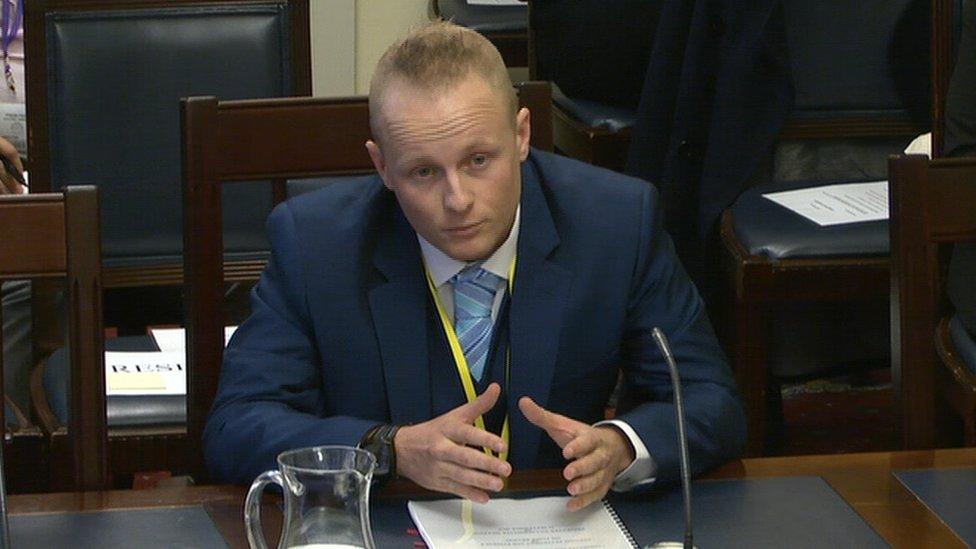
Appearing before the committee, Mr Bryson threatened to seek a judicial review if his evidence is not heard in public
Mr Bryson had contacted the committee to claim he had evidence about the deal.
He claims he has primary documentation and therefore should be heard in public.
MLAs voted to hold a preliminary public session with Mr Bryson to allow them to assess if Mr Bryson met their criteria to give his evidence in a full public session.
Appearing at the preliminary session, Mr Bryson threatened to seek a judicial review if his evidence is not heard in public.
'Intricate web'
He said he was conscious that he did not want to stray into any area of evidence that the committee did not want him to and said he would make "no wild allegations or innuendo".
Mr Bryson said he could stand over all the evidence he would provide.
"I believe my evidence will uncover an intricate web of political and financial behaviours that will show how there is an epidemic of cash-for-influence scams within the political, business, banking, accountancy and property development professions," he said.
Following his submission, MLAs voted to allow Mr Bryson to give his evidence in an open session.
Last week, MLAs decided witnesses who cannot demonstrate a "direct link" to parties at the centre of the inquiry should be heard behind closed doors.
Their evidence would be published at a later stage and could be partly redacted.
Cerberus, which bought the loans from Nama, has denied that any improper or illegal payments were made on its behalf.
Nama says the sales process was "robust, competitive and secured the best outcome for the Irish taxpayer".
- Published18 September 2015
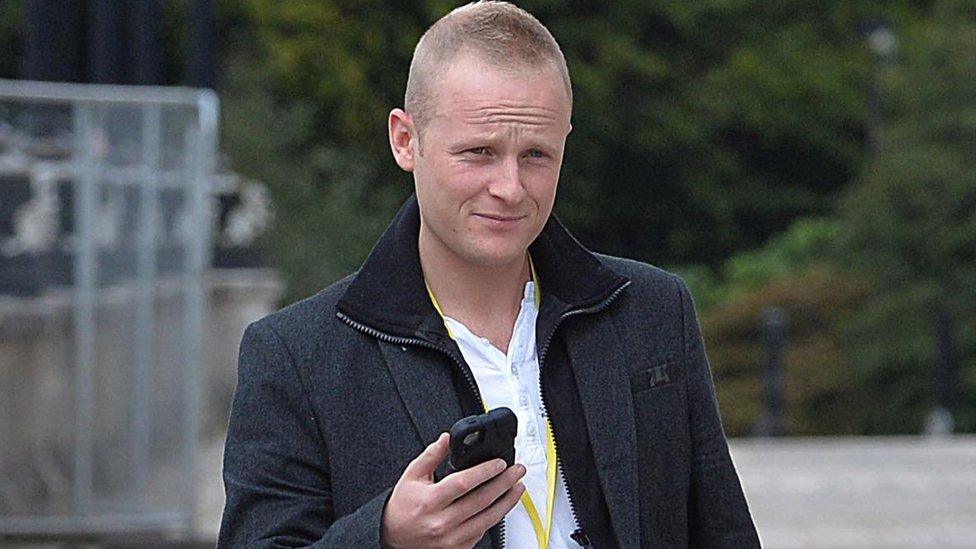
- Published6 September 2015
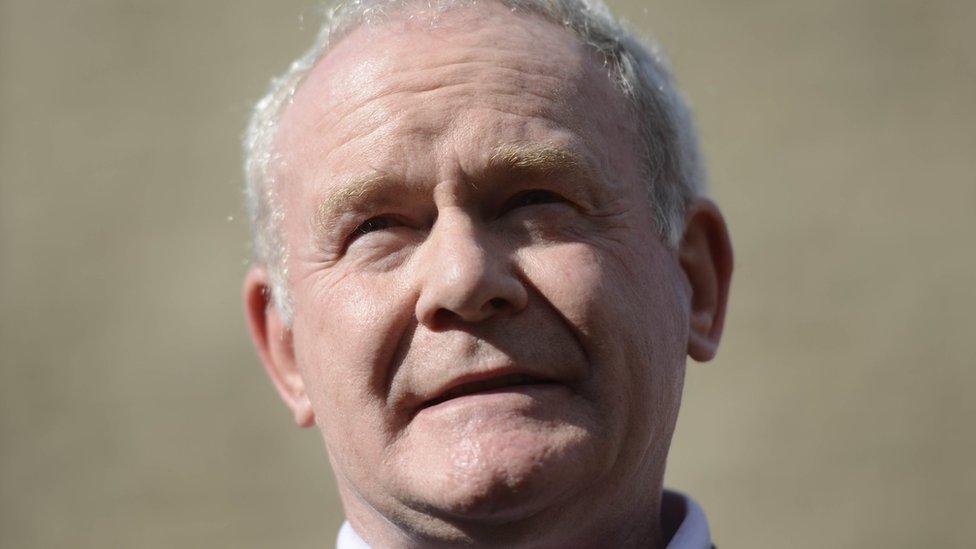
- Published16 September 2015
